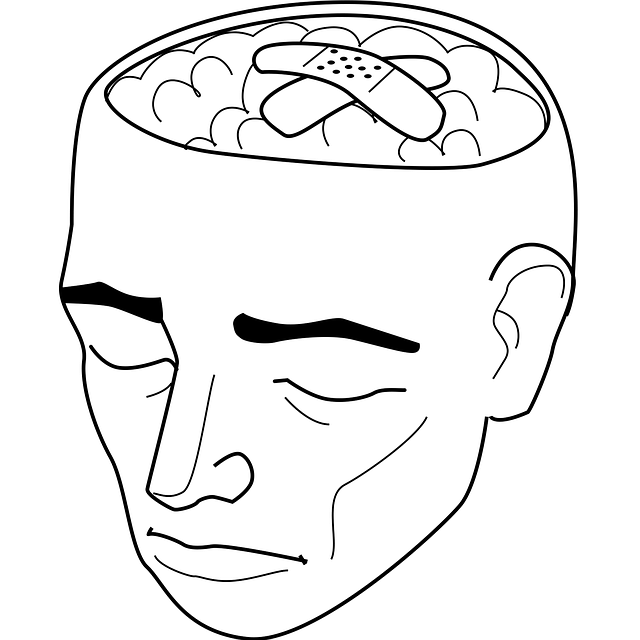Westminster Oppositional Defiance Disorder (WODD) therapy requires a multi-faceted approach focusing on risk assessment and harm minimization. Therapists must consider personal history, behavior, environmental factors, and therapeutic interventions to identify potential hazards. Effective strategies include burnout prevention, open communication, staying updated with mental health policies, and advocating for change. Comprehensive risk assessments guide tailored interventions like structured therapy, CBT, and coping mechanism teaching. Regular monitoring, evaluation, and adjustments ensure personalized treatment plans that adapt to the evolving needs of WODD clients.
Risk assessment and harm minimization planning are paramount in providing effective Westminster Oppositional Defiance Disorder (WODD) therapy. This article delves into crucial aspects of managing therapeutic risks, from identifying potential hazards specific to WODD to implementing robust harm minimization strategies. We explore comprehensive planning steps, emphasize monitoring, evaluation, and adjustments, ensuring continuous safety for clients. By integrating these principles, caregivers can enhance therapeutic integrity while navigating the unique challenges posed by WODD.
- Understanding Risk Assessment: Identifying Potential Hazards in Therapy
- Westminster Oppositional Defiance Disorder (WODD): A Unique Challenge for Caregivers
- Harm Minimization Strategies: Protecting Clients and Therapeutic Integrity
- Creating a Comprehensive Plan: Steps Towards Effective Risk Management
- Monitoring, Evaluation, and Adjustment: Ensuring Continuous Safety in WODD Therapy
Understanding Risk Assessment: Identifying Potential Hazards in Therapy

Understanding Risk assessment is paramount in therapy, especially when addressing complex conditions like Westminster Oppositional Defiance Disorder (WODD). It involves a meticulous process of identifying potential hazards and assessing their likelihood and severity to mitigate risks and promote client safety. Therapists must consider various factors such as the individual’s history, current behavior, environmental influences, and the nature of the therapeutic intervention itself.
Effective risk assessment for WODD therapy requires a comprehensive approach that includes Burnout Prevention Strategies for Healthcare Providers, fostering open Communication Strategies, and staying abreast of Mental Health Policy Analysis and Advocacy. By proactively identifying and managing risks, therapists can create a secure environment, enhance treatment outcomes, and ensure the well-being of both clients and practitioners.
Westminster Oppositional Defiance Disorder (WODD): A Unique Challenge for Caregivers

Westminster Oppositional Defiance Disorder (WODD) presents a unique set of challenges for caregivers. This complex condition, characterized by persistent defiant and hostile behaviour, often requires specialized approaches to effectively manage symptoms. Caregivers play a pivotal role in supporting individuals with WODD through tailored strategies that can significantly impact their overall mental wellness.
One effective approach is Westminster Oppositional Defiance Disorder therapy, which focuses on coping skills development. By incorporating evidence-based techniques, mental health awareness becomes a cornerstone of care. Mental wellness coaching programs developed specifically for WODD can empower both the individual and their caregivers, fostering healthier interactions and promoting positive behaviour changes.
Harm Minimization Strategies: Protecting Clients and Therapeutic Integrity

Harm Minimization Strategies play a pivotal role in safeguarding clients and upholding the integrity of Westminster Oppositional Defiance Disorder (ODD) Therapy. These strategies are designed to mitigate potential risks and ensure that therapeutic practices remain ethical and effective. Mental health professionals must implement robust measures to protect vulnerable individuals seeking treatment for ODD, especially considering the nature of their challenges.
A comprehensive Risk Assessment for Mental Health Professionals is an indispensable tool. It involves a thorough evaluation of clients’ backgrounds, including their history of oppositional behavior, stress management techniques, and resilience-building skills. By understanding these factors, therapists can tailor interventions to minimize harm and promote positive outcomes. Effective strategies may include structured therapy sessions, cognitive behavioral therapy (CBT), and teaching coping mechanisms to enhance clients’ ability to manage stressful situations.
Creating a Comprehensive Plan: Steps Towards Effective Risk Management

Creating a comprehensive risk assessment and harm minimization plan is a crucial step for mental health professionals to ensure effective management of potential risks within their practice. This process involves several key steps. First, identify all possible risks associated with the provision of therapy, including those related to client demographics, therapeutic methods, and environmental factors. For instance, when treating clients with Westminster Oppositional Defiance Disorder (WODD), understanding the unique challenges they present is essential.
Next, prioritize these risks based on their likelihood and potential impact. This step ensures that mental wellness professionals focus their efforts on addressing the most critical areas first. Subsequently, develop strategies to mitigate each identified risk. These strategies might include implementing specific protocols, providing additional training for staff, or utilizing specialized tools tailored for anxiety relief. Effective risk management planning also involves regular review and updates to stay aligned with evolving best practices in mental health care.
Monitoring, Evaluation, and Adjustment: Ensuring Continuous Safety in WODD Therapy

Monitoring, Evaluation, and Adjustment play a pivotal role in ensuring continuous safety and effectiveness within Westminster Oppositional Defiance Disorder (WODD) Therapy. Regular assessment of client progress is essential to gauge the impact of interventions and adjust treatment plans accordingly. This dynamic approach allows healthcare providers to incorporate feedback from both clients and their families, fostering a more tailored and responsive therapy experience.
Through ongoing monitoring, therapists can identify areas where additional support or alternative strategies might be needed. Evaluation methods may include structured assessments, client self-reports, and observation. By integrating these diverse data sources, healthcare providers gain valuable insights into the client’s mental wellness journey. This knowledge guides them in offering personalized Guidance, such as Mental Wellness Journaling Exercises, and tailoring interventions to meet individual needs. Furthermore, regular review enables the team to adapt to changing circumstances, ensuring that WODD Therapy remains culturally competent and responsive to the evolving needs of each unique client, as supported by Healthcare Provider Cultural Competency Training. Public Awareness Campaigns Development can also play a role in promoting understanding and fostering an environment where clients feel empowered to actively participate in their therapy process.
Risk assessment and harm minimization planning are indispensable components of providing effective Westminster Oppositional Defiance Disorder (WODD) therapy. By understanding potential hazards, implementing strategic mitigation tactics, and regularly monitoring progress, caregivers can create a safe and supportive environment for clients. Through these comprehensive steps, therapists can enhance therapeutic integrity while ensuring continuous safety in WODD therapy.














